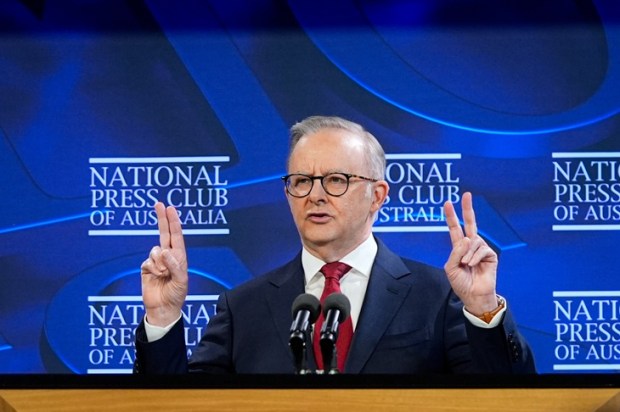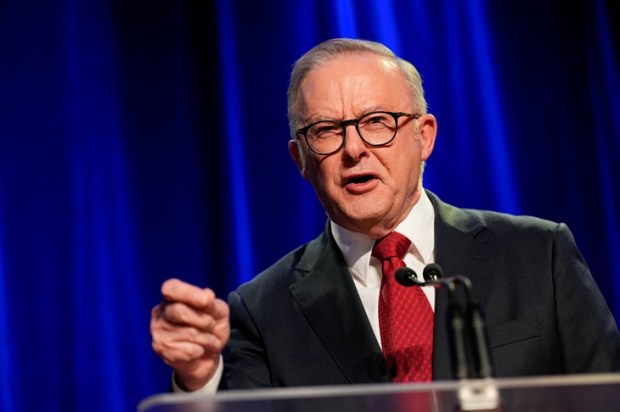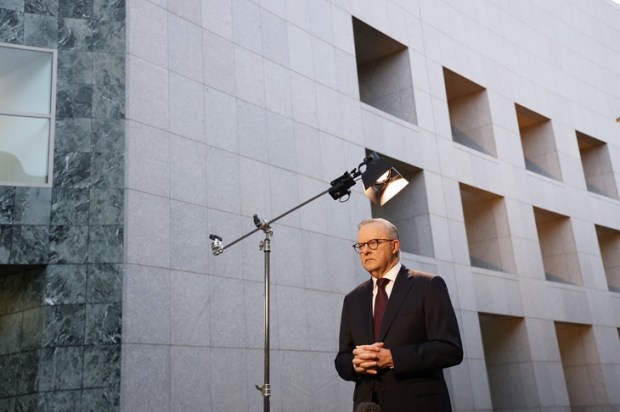In a move that reeks of ideological posturing over prudent statecraft to ensure our national security, Prime Minister Anthony Albanese has announced Australia’s intention to recognise the State of Palestine at the United Nations General Assembly in September 2025. This is government overreach in the extreme.
The decision, ostensibly aimed at advancing a two-state solution, risks fracturing the delicate contract that binds Australian society. Drawing on the philosophical foundations of governance, it becomes clear that such a unilateral act contravenes the social contract, as articulated by Jean-Jacques Rousseau, and echoes the warnings of Benjamin Franklin and Edmund Burke against hasty disruptions to established order.
Rousseau’s The Social Contract (1762) posited that legitimate government derives from the general will of the people, a collective sovereignty where citizens surrender individual rights for the common good. In this framework, the state acts as a trustee, bound to reflect the unified interests of its populace rather than impose factional agendas. Albanese’s push for Palestinian recognition appears detached from this general will. It recognises terrorists and ignores the will of Australian citizens.
Recent polls indicate division among Australians with a May 2025 survey revealing 45 per cent support for recognising Palestine before a negotiated peace, with significant opposition and uncertainty lingering. This number is incredulous. I’d like to know if they asked a bunch of people from Sydney and Melbourne and took this as the general will.
Another poll from earlier in the year showed just 35 per cent in favour, highlighting a lack of consensus. By proceeding without a clear mandate, which could easily be done through a plebiscite or broader consultation, the government risks alienating segments of society, including Jewish communities and those concerned with national security.
This is not the harmonious general will Rousseau envisioned, it is governance by decree, eroding the mutual trust essential to the social contract.
It is also a win for Hamas.
Benjamin Franklin, a founding father of American republicanism, offered a cautionary parallel. At the close of the Constitutional Convention in 1787, Franklin famously remarked, ‘a republic, if you can keep it’ underscoring the fragility of self-governance and the need for vigilance against divisive forces.
The 2006 election in ‘Palestine’ was the last one. The proscribed terrorist organisation Hamas has been in charge ever since with elections less than a pipe dream.
Franklin’s diplomacy during the Revolutionary War emphasised pragmatic alliances and avoidance of entanglements that could undermine unity.
Australia’s longstanding alliance with Israel, rooted in shared democratic values and strategic interests, has been a pillar of our foreign policy. Recognising Palestine prematurely, amid ongoing conflicts and without ironclad commitments to peace, will strain ties with key partners like the United States, which has historically opposed such moves without bilateral agreements.
The US is the only other ally in history who spilt blood defending us against an external aggressor. Anyone who doesn’t understand this is an ungrateful recipient of history.
Edmund Burke, the Father of Conservatism, provided the most damning critique. In Reflections on the Revolution in France (1790), Burke railed against radical upheavals that discard historical precedents in favour of abstract ideals. He argued for organic evolution in society, where changes must respect established institutions and traditions to avoid chaos.
Albanese’s recognition of Palestine smacks of Burkean folly. It upends decades of Australian policy favouring negotiated settlements, potentially emboldening extremists and destabilising the Middle East. Burke warned that such ‘metaphysical’ experiments, which include imposing statehood without addressing root causes such as terrorism or governance failures, can lead to tyranny and disorder.
Indeed, critics (including me) argue this move rewards terrorism, ignoring Israel’s security concerns and the Palestinian Authority’s internal divisions.
In breaching the social contract, the government invites a Burkean backlash. This includes eroded public trust, heightened communal tensions, and a precedent for future ideological overreaches.
This is not mere foreign policy. It strikes at the heart of our democratic compact.
By forging ahead, Albanese risks unravelling the threads of Australian society, prioritising virtue-signalling over the common good.
Australians deserve a government that upholds the social contract, not one that fractures it for fleeting applause on the global stage.
The Australian government’s announcement of its intention to recognise Palestine while the terrorists still hold Israeli hostages is a National Day of Shame. It’s one time when I think the Australian government ought to be saying sorry.
Dr Michael de Percy @FlaneurPolitiq is the Spectator Australia’s Canberra Press Gallery Correspondent. If you would like to support his writing, or read more of Michael, please visit his website.


























